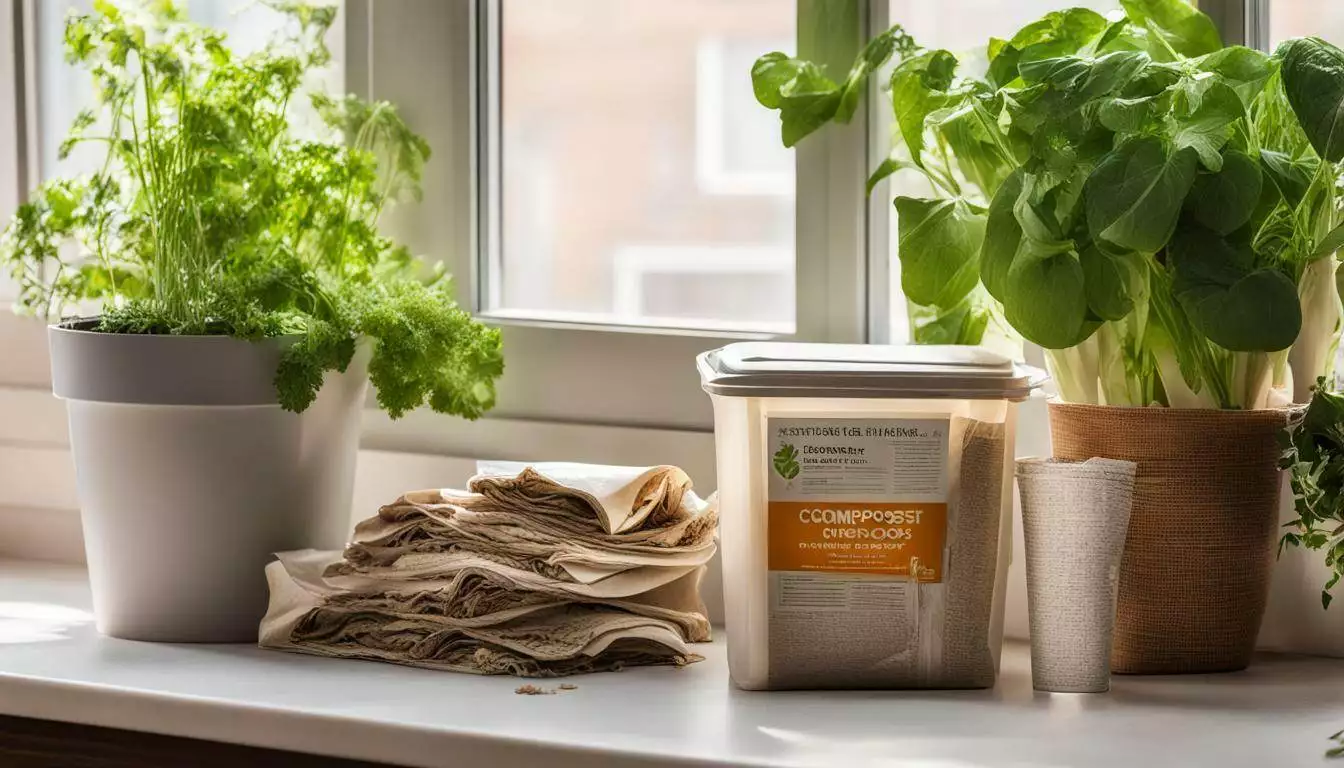Living in an apartment doesn’t mean you can’t compost! Whether you’re concerned about reducing waste or want to grow your own apartment garden, composting is a simple and effective solution. In this article, we’ll explore how to compost in an apartment without worms, providing you with the methods, tips, and tools needed to get started.
Key Takeaways:
- You can compost in an apartment without the use of worms.
- Composting in an apartment offers convenience and environmental benefits.
- Bokashi composting, vermicomposting alternatives, and composting with aerobic systems are suitable options for small spaces.
Why Compost in an Apartment?
If you live in an apartment without outdoor space, you might think composting is out of your reach. But that’s not the case! Indoor composting without worms is a great solution for apartment dwellers who want to reduce household waste and create nutrient-rich soil.
Composting is eco-friendly and convenient, as it helps reduce landfill waste and provides a sustainable way to dispose of food scraps and other organic matter. By composting in your apartment, you can reap the benefits of this process while minimizing your environmental impact.
There are several apartment composting methods to choose from, depending on your preferences and needs. Some options include bokashi composting, vermicomposting alternatives, and composting with aerobic systems. These methods can be customized to fit a small space and are easy to maintain.
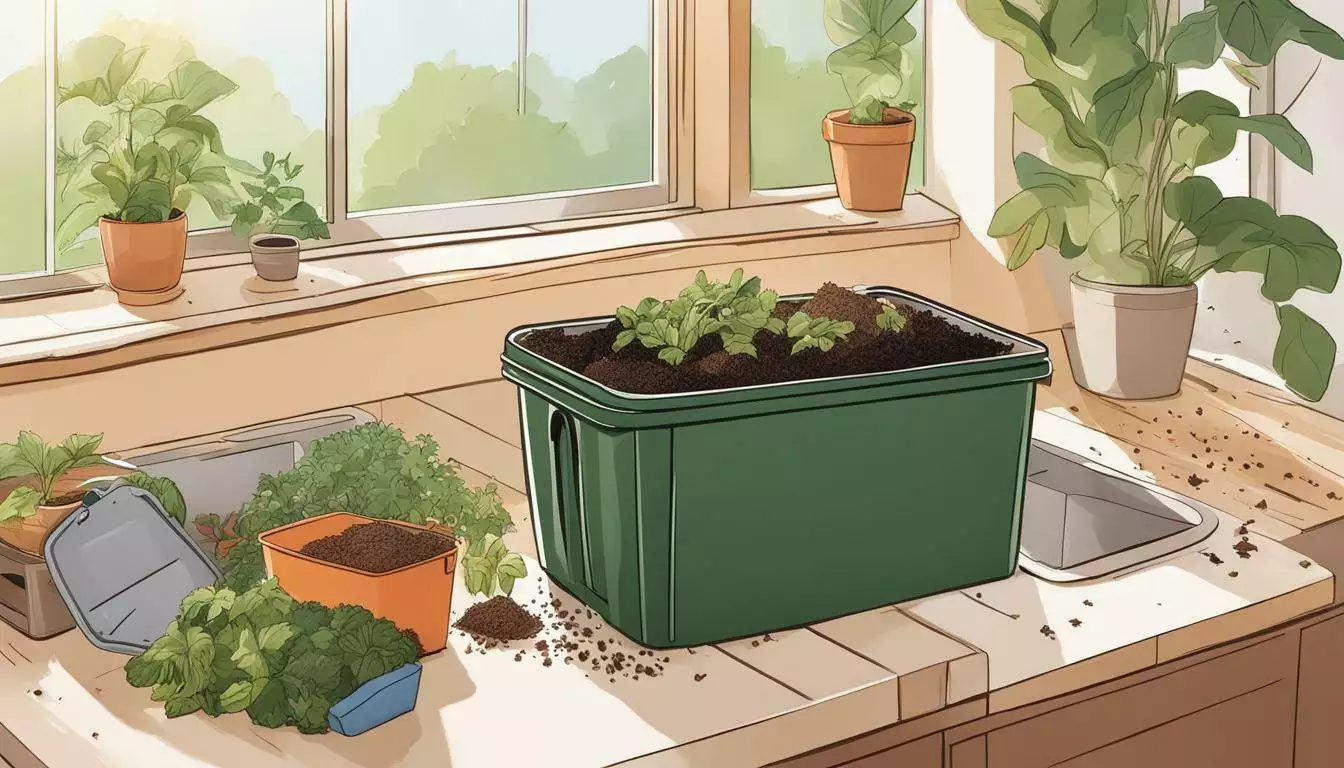
Choosing the Right Composting Method
If you’re looking to compost in your apartment without worms, there are several options available to you. Here are some of the most effective composting methods suitable for small spaces:
| Method | Description |
|---|---|
| Bokashi Composting | A fermentation process that uses anaerobic bacteria to break down food waste. |
| Vermicomposting Alternatives | Using black soldier fly larvae or red composting mites instead of worms to break down food waste. |
| Aerobic Composting Systems | Using compost tumblers or composting bags that rely on oxygen to break down food waste. |
Each of these methods is a great way to compost in an apartment without worms. Bokashi composting is a popular method that is odor-free and requires minimal space. Similarly, vermicomposting alternatives, such as black soldier fly larvae or red composting mites, are excellent options that can break down food waste quickly and efficiently. Meanwhile, aerobic composting systems like compost tumblers or bags rely on oxygen to break down the waste material, resulting in nutrient-rich compost.
Consider your space, lifestyle, and preferences before choosing a composting method that works best for you.
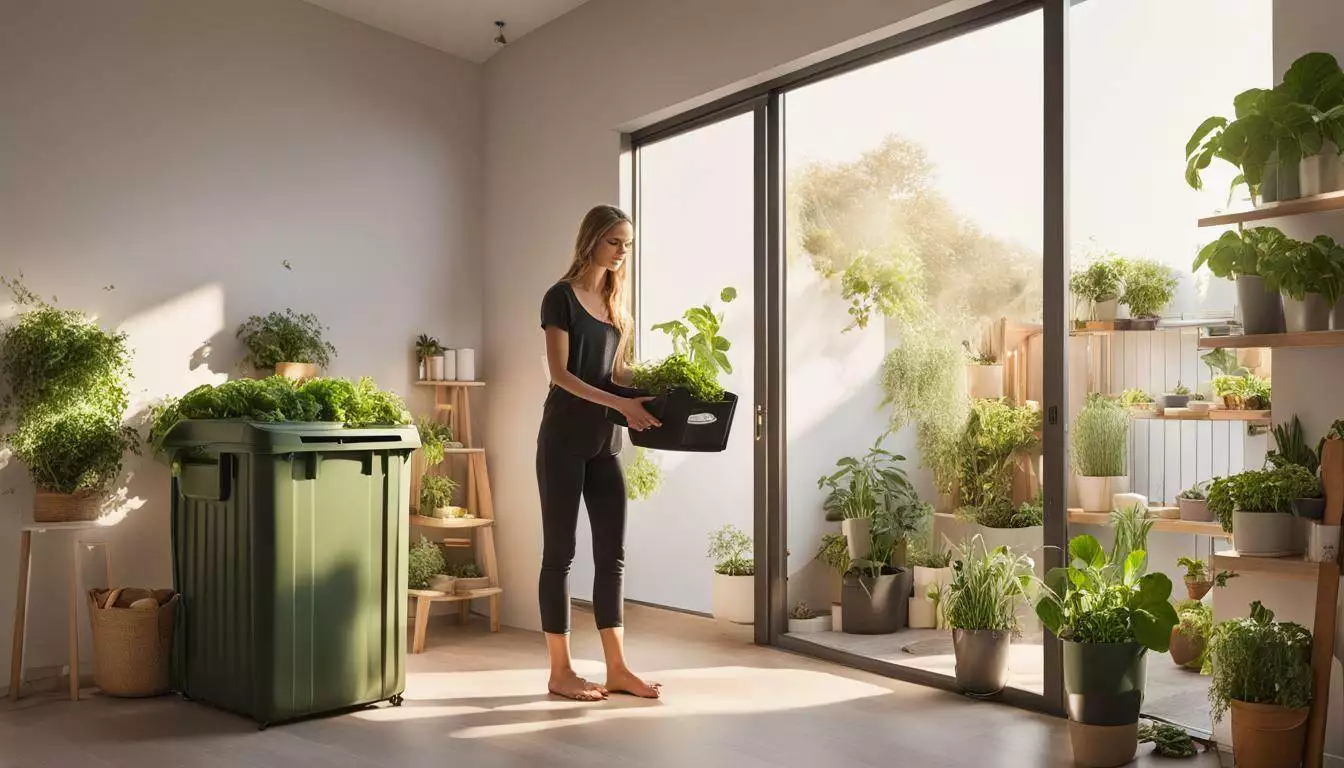
Essential Tools and Materials
When it comes to apartment composting solutions without worms, there are a few tools and materials you’ll need to get started. These items can be easily found at your local gardening store or online.
| Tool/Material | Description |
|---|---|
| Compost bin | An airtight container to hold your compost materials. Look for one specifically designed for apartment or indoor composting. |
| Compostable bags | These bags are made from plant-based materials and can be added directly to your compost bin. They break down along with the rest of the compost. |
| Carbon-rich materials | These materials such as dried leaves, shredded paper, and cardboard provide the necessary carbon for your compost. You’ll need a good mix of carbon to nitrogen-rich materials for a healthy compost pile. |
| Compost thermometer | This tool will help you monitor the temperature of your compost pile. The ideal temperature for composting is between 120-150°F. |
By having these apartment composting methods without worms in place, you’ll be ready to start composting in no time.
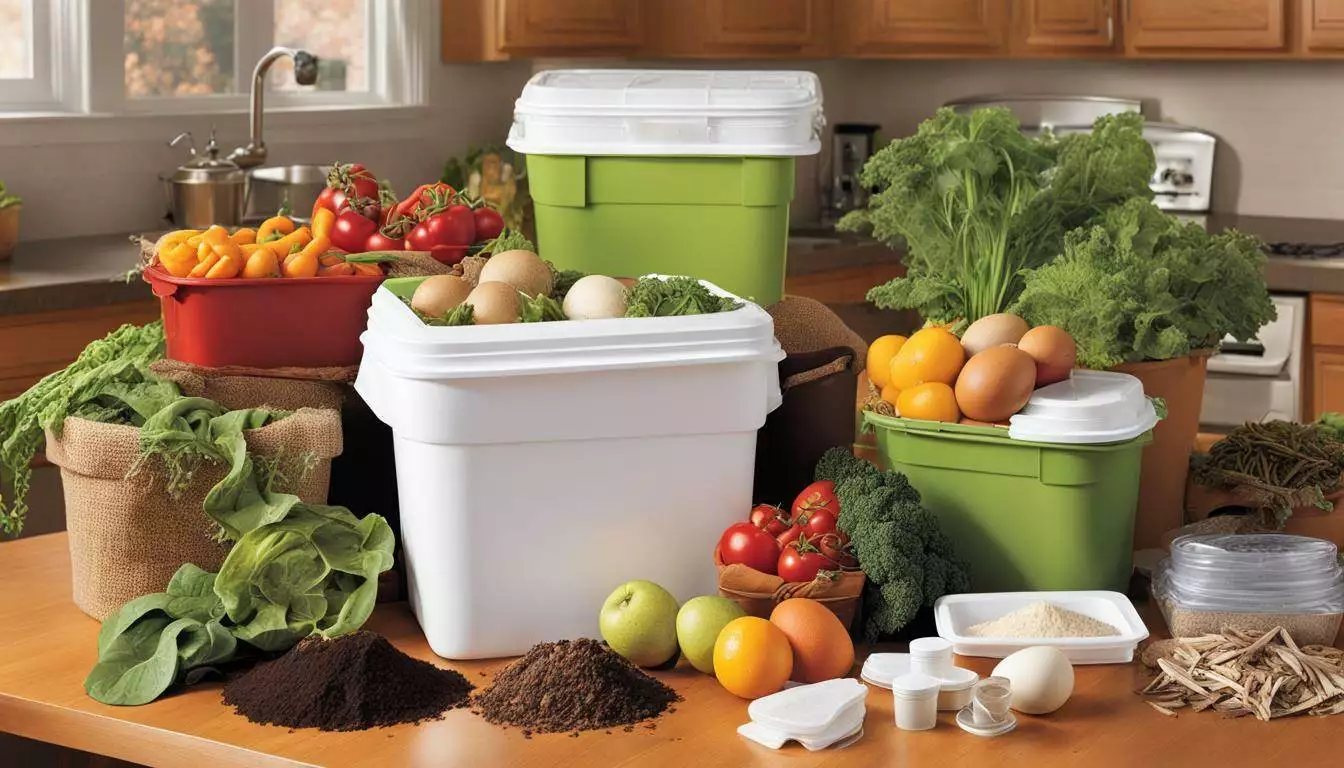
Setting Up Your Apartment Compost System
Composting in an apartment may seem daunting, but with the right tools and guidance, it can be a straightforward process. Follow these steps to set up your own apartment compost system:
- Choose the right location: Select a spot that is easily accessible and well-ventilated. It should be away from direct sunlight and heat sources, such as radiators or appliances.
- Prepare the compost bin: There are a variety of compost bin options available, such as countertop bins or larger outdoor-style bins. Choose one that fits your space and needs. Line the bottom with a layer of newspaper or cardboard to prevent any potential leaks.
- Add the right ingredients: Your compost bin should include a mix of green and brown materials. Green materials include food scraps and plant waste, while brown materials include shredded paper, dried leaves, and cardboard. Avoid adding meat, dairy, or oils to prevent attracting pests or creating odors.
- Manage the compost: Turn or mix the contents of your compost bin every few days to encourage proper decomposition. Monitor moisture levels and adjust as needed, aiming for a damp, but not soggy, consistency.
- Patience and consistency: Composting is a gradual process, and depending on the method, it can take a few weeks to several months to produce usable compost. Stay consistent with adding materials and managing the compost to achieve optimal results.
By following these steps, you’ll be on your way to successful apartment composting. Remember to refer back to this apartment composting guide if you have questions along the way.
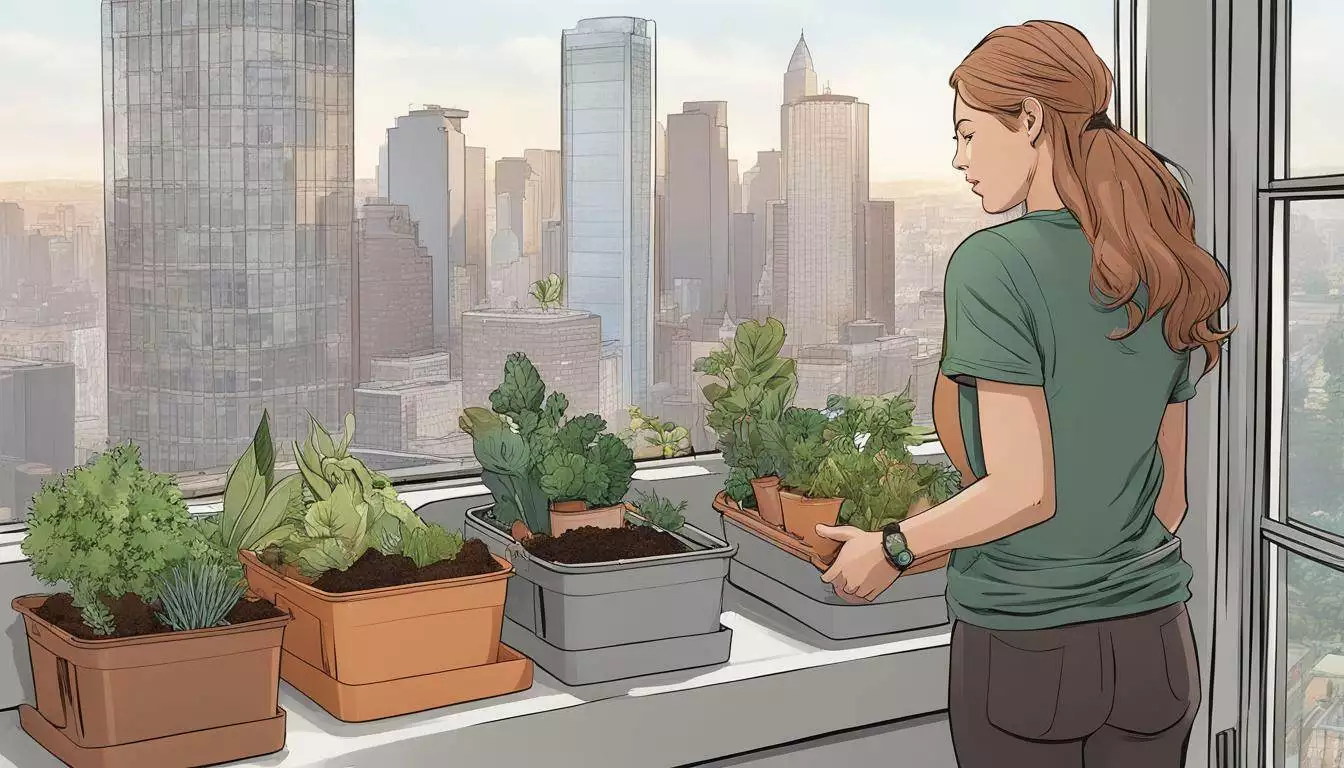
Maintaining Your Apartment Compost
Now that you’ve set up your apartment compost system without worms, it’s important to know how to maintain it properly. Here are some apartment composting tips to help you keep your compost healthy and thriving:
Managing Odor
One of the biggest concerns with indoor composting is managing odor. To keep your compost smelling fresh, make sure to add carbon-rich materials such as shredded paper or dried leaves to balance out the nitrogen-rich food scraps. In addition, avoid adding meats, dairy, and oils to your compost bin as they can create a foul odor.
Maintaining the Right Moisture Levels
Proper moisture levels are essential for the composting process. Your compost should be damp, but not overly wet. If it’s too dry, add some water to the compost. On the other hand, if it’s too wet, add some dry materials such as shredded paper or leaves to absorb excess moisture.
Troubleshooting Common Issues
Even with the best intentions, problems can arise when composting in small spaces. If your compost seems to be taking too long to break down, it may be because of a lack of oxygen. Try fluffing up the compost with a pitchfork or adding some dry materials to increase air flow. If you notice any pests in your compost, such as fruit flies or ants, try burying the food scraps deeper in the compost or adding more carbon-rich materials.
By following these apartment composting tips for worm-free composting in small spaces, you can maintain a healthy and thriving compost system in your apartment.
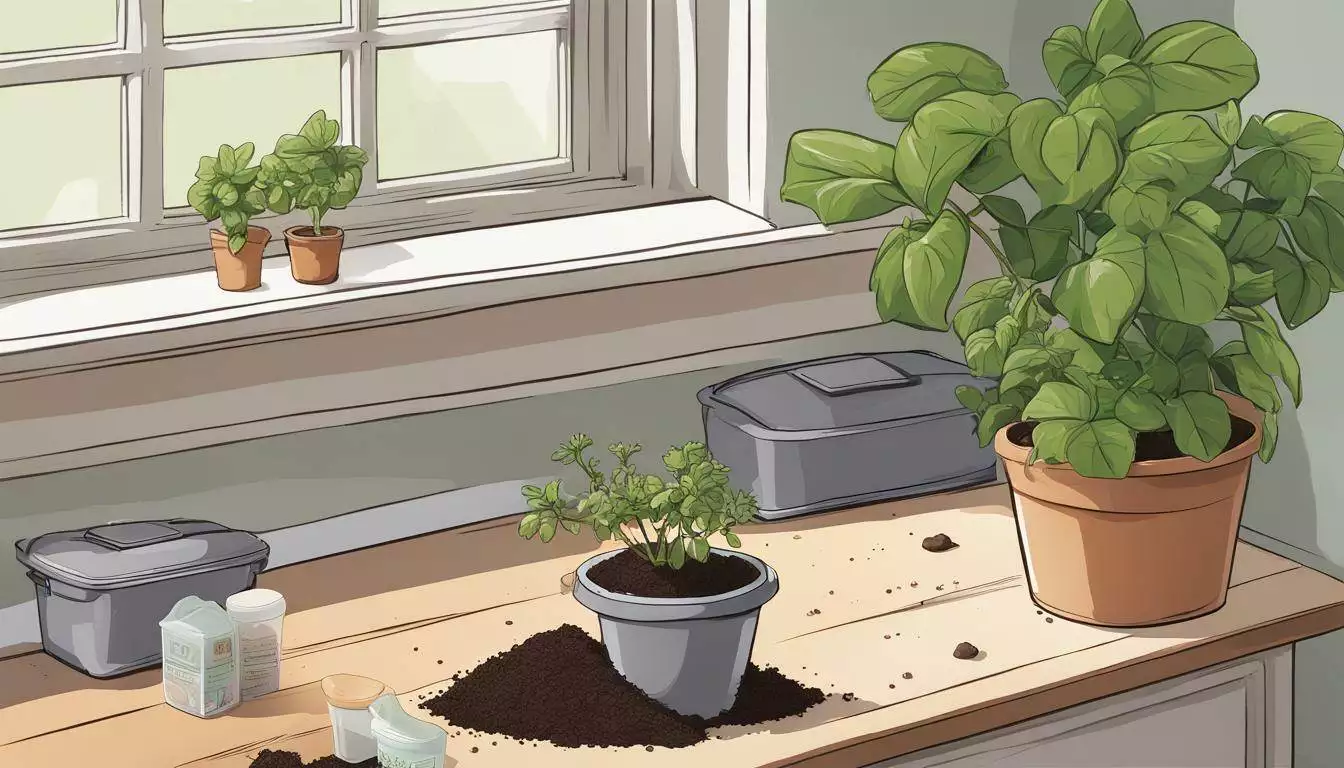
Using Your Apartment Compost
Now that you have successfully composted in your small apartment without worms, it’s time to put that nutrient-rich soil to use. Here are some worm-free composting solutions for your urban compost:
- Use it to fertilize your potted plants. Your indoor plants will love the nutrient-rich soil, which will help them grow strong and healthy.
- Create an outdoor balcony garden. If you have a balcony, use your compost to grow some fresh vegetables, herbs, or flowers. Urban composting ideas like this are a great way to add green to your urban living space.
- Donate it to a community garden. If you don’t have a use for your compost, consider donating it to a local community garden. Not only will you be reducing waste, but you’ll also be helping others to grow their own food and make their own small urban gardens.
Composting in small spaces is an excellent way to take care of the environment while also improving your personal space. Continue to explore composting methods without worms that fit your lifestyle and location, and never hesitate to reach out to experienced composters or expert urban composting solutions providers if you need additional assistance. Remember, composting in apartments is a step towards a more sustainable and green future for all.
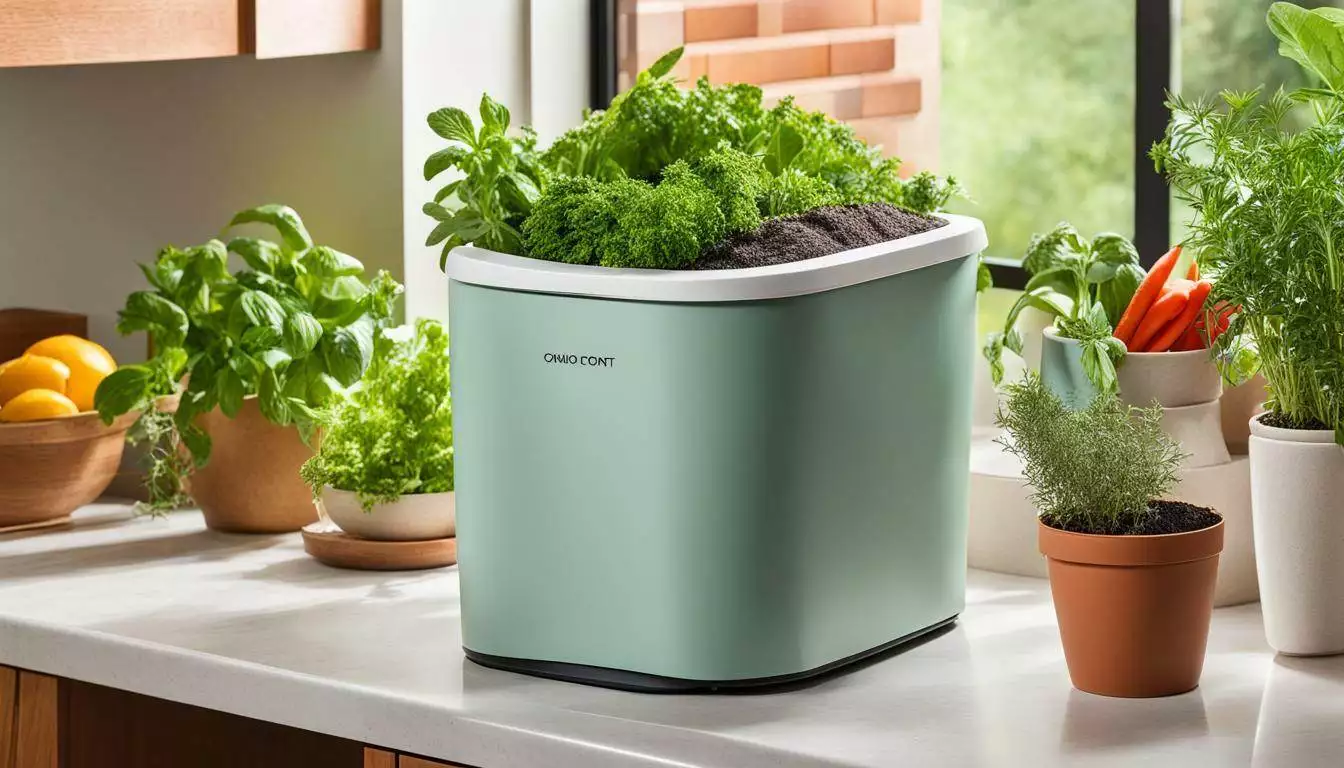
Conclusion
Congratulations! You have now mastered the art of composting in your apartment without worms. By following the tips and guidance provided in this article, you can now enjoy the benefits of composting, no matter how small your living space is.
Remember, composting is not only beneficial for the environment, but it can also save you money on fertilizers and help enhance the beauty and health of your indoor plants and balcony garden. Plus, with the right composting system in place, you can reduce the amount of waste that goes into landfills and contribute to a more sustainable future.
So, go ahead and start your urban composting journey today. With the right tools, materials, and methods, you’ll be well on your way to creating nutrient-rich soil and a healthier planet.
FAQ
Q: What are the benefits of composting in an apartment?
A: Composting in an apartment allows you to reduce waste, create nutrient-rich soil, and contribute to a more sustainable lifestyle.
Q: Can I compost without outdoor space?
A: Yes, there are several methods of composting that can be done indoors without the need for outdoor space.
Q: What composting methods are suitable for apartments without worms?
A: Bokashi composting, vermicomposting alternatives, and composting with aerobic systems are all suitable methods for composting in apartments without worms.
Q: What tools and materials do I need for apartment composting?
A: Essential tools and materials for apartment composting include a compost bin, compostable bags, carbon-rich materials, and a compost thermometer.
Q: How do I set up a compost system in my apartment?
A: To set up a compost system in your apartment, choose the right location, prepare the compost bin, and manage the composting process in a small space.
Q: How do I maintain my apartment compost without worms?
A: To maintain your apartment compost without worms, manage odor, maintain the right moisture levels, and troubleshoot common issues that may arise.
Q: What can I do with the compost produced in my apartment?
A: You can use the compost in potted plants, balcony gardens, or donate it to community gardens. It is a great way to nourish your plants and contribute to sustainable living.

